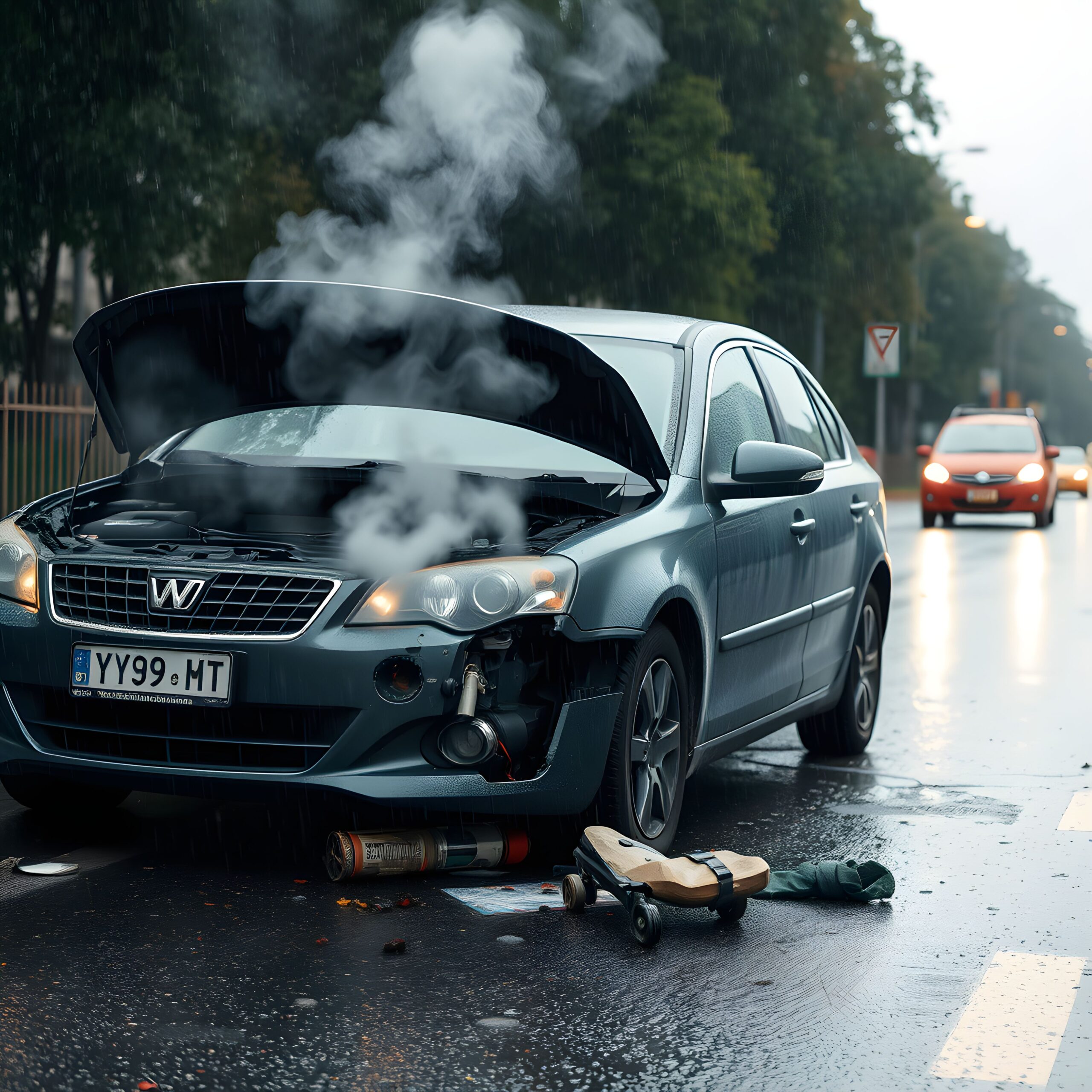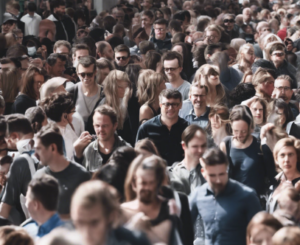On February 13, 2025, a shocking and tragic incident unfolded in Munich, Germany, as a car crashed into a protest, injuring at least 28 people, including children. The vehicle plowed into a crowd of demonstrators gathered as part of a protest organized by the Verdi union, which was calling for better wages and working conditions for public sector workers. The protest was supposed to be a peaceful demonstration advocating for workers’ rights, but it quickly turned into a scene of chaos and fear when the vehicle drove directly into the crowd.
This unexpected event has not only drawn national attention but has also sparked debates about public security, the safety of protests, and the wider political climate in Germany. In this article, we will dive into the details of the Munich protest, the terrifying crash, and its aftermath. We will also explore the national reactions, the security implications, and the political context surrounding this disturbing incident.
The Munich Protest: A Call for Workers’ Rights
The protest in Munich on February 13, 2025, was part of a larger series of demonstrations across Germany, organized by the Verdi union. Verdi represents workers in the public sector, including healthcare, education, transportation, and other vital public services. The strike, involving over 1,000 workers, was aimed at securing better pay, improved working conditions, and longer holidays for public sector employees.
Germany’s public sector workers have been struggling for years with stagnating wages, particularly in the face of rising inflation and the growing cost of living. The Verdi union argued that public sector employees, who serve crucial roles in society, should be compensated fairly and adequately. Their demands were further underscored by the growing frustration among workers who felt that their hard work and dedication were being undervalued.
The protest was organized with the goal of drawing attention to these economic inequalities, and it was expected to be peaceful. Workers from a variety of sectors gathered in the heart of Munich, waving signs and chanting slogans demanding fair pay. The protest’s message was clear: public sector workers deserve more, and they were willing to fight for it.
The Incident: Timeline of the Crash
At approximately 10:30 a.m., while the protest was at its peak, an unsettling incident occurred. A Mini Cooper, driven by a 24-year-old Afghan asylum seeker, was steered directly into the crowd of demonstrators. Eyewitnesses reported that the driver appeared to deliberately veer into the protesters. The sound of the car accelerating toward the crowd was followed by screams of terror as people scrambled to avoid being hit.
The vehicle struck several people, knocking them to the ground and causing immediate panic among the protesters. Many of the demonstrators were unable to escape the vehicle’s path, and a number of them were injured in the crash. The car came to a halt shortly after the impact, and the driver was immediately apprehended by the police.
This incident has sparked immediate concerns about the possibility of it being a politically motivated attack. Although initial reports have not confirmed any specific motives, the deliberate nature of the crash has raised suspicions. The investigation into the incident is ongoing, but law enforcement agencies have indicated that the driver’s actions were not accidental.
The Aftermath: Casualties and Medical Response
In the immediate aftermath of the crash, emergency services rushed to the scene to provide medical assistance. At least 28 people were injured, including several children. Some of the victims sustained serious injuries, including broken bones, head trauma, and other severe injuries. Medical teams worked tirelessly to treat the wounded, with many being transported to nearby hospitals for further care.
The chaos that followed the crash was compounded by the large number of people who were in the area, both protesters and onlookers. The authorities quickly established a perimeter to keep the crowd under control and to ensure the safety of those in the vicinity. While it was fortunate that no fatalities have been reported, the injuries sustained by many of the victims were a stark reminder of the dangers inherent in large public gatherings.
The police also began an immediate investigation to determine whether the crash was part of a larger plan or a lone attack. The authorities worked closely with medical professionals to assess the situation and determine the best course of action for the injured.
Authorities’ Response: Investigation and Arrest
The 24-year-old driver was quickly arrested at the scene, and the police launched a comprehensive investigation into the incident. The suspect, an Afghan asylum seeker, was reportedly known to law enforcement authorities for previous criminal activity, though not for violent crimes. The authorities are now investigating whether this was a targeted attack, as the vehicle appeared to steer directly into the protest crowd.
Following the arrest, the police began analyzing the suspect’s background, including his social media activity, which reportedly contained extremist content linked to Islamist ideologies. These findings have raised serious questions about whether the crash was part of a larger political or ideological agenda.
In response to the attack, German Chancellor Olaf Scholz condemned the incident, emphasizing that acts of violence would not be tolerated. “This is an attack on the peaceful citizens of Germany, and it will not stand,” Scholz stated. He vowed to ensure that the full force of the law would be applied to the perpetrator.
The suspect’s arrest and the ongoing investigation have prompted a national conversation about public safety and the potential for politically motivated violence. The German government has pledged to increase security around public demonstrations to prevent such incidents from occurring in the future.
Public Reactions: Shock and Outrage
The car crash in Munich has sent shockwaves through German society. Public reaction has been swift, with many citizens expressing outrage and disbelief at the actions of the driver. Many have called for stronger measures to protect public safety during protests and demonstrations, especially considering the increasing frequency of public unrest in recent years.
Social media platforms have also been flooded with reactions, with some users expressing concerns about the rise of politically motivated violence. The attack in Munich has been compared to similar incidents in other European countries, where political unrest has led to violent confrontations between protesters and authorities.
At the same time, some have cautioned against using the event as an excuse to demonize immigrants or asylum seekers. Critics argue that the attack was the action of an individual and should not be used to fuel anti-immigrant sentiment. However, the incident has undoubtedly sparked renewed debates about immigration and the role of refugees in German society.
The Political Context: Immigration and Security
The Munich protest car crash comes at a time when Germany is grappling with complex issues surrounding immigration and national security. The country has been at the center of the European refugee crisis in recent years, with hundreds of thousands of asylum seekers arriving in Germany. While many of these individuals have integrated into society, others have faced challenges, including unemployment, discrimination, and marginalization.
The car crash has reignited the debate about immigration policy in Germany. Politicians on both sides of the spectrum have expressed their views on how the country should handle the issue of asylum seekers. Some have called for stricter border controls and more rigorous vetting processes for refugees, while others have urged the government to maintain its welcoming stance toward migrants.
In particular, the incident has highlighted the potential for radicalization among some asylum seekers, with concerns growing about the spread of extremist ideologies. The German government faces the difficult task of balancing security concerns with its commitment to protecting human rights and offering refuge to those in need.
The Broader Implications: Security and Public Protests
The Munich car crash has also raised questions about the future of public protests in Germany. As protests become more frequent and politically charged, the question of how to ensure the safety of demonstrators and bystanders becomes increasingly important. While the right to protest is a fundamental part of democratic society, ensuring that these events remain peaceful and secure is equally crucial.
The German government is likely to increase security measures at future protests, particularly those involving large crowds. This may include heightened police presence, more stringent security checks, and the use of technology to monitor protests in real time.
The attack in Munich also underscores the challenges that governments face in managing public unrest in an era of increasing polarization. With rising political tensions and the growing influence of social media, the potential for violence at public demonstrations is higher than ever. Governments must find a way to address these issues without infringing on the fundamental rights of their citizens.
The Road Ahead
The car crash at the Munich protest has left a lasting impact on Germany, raising important questions about security, immigration, and political polarization. While investigations continue, the nation must come to terms with the reality of politically motivated violence and its implications for public demonstrations.
This tragic event serves as a reminder that, while protests are a vital form of expression, they can also pose risks to public safety. As Germany moves forward, it will need to balance its commitment to free speech with the need for security and public order.
The Munich crash has also reignited debates about immigration and the integration of asylum seekers, as well as the broader challenges facing European societies in an era of political unrest. In the coming months, it will be important for the German government to take decisive action to ensure the safety of its citizens while maintaining its open-door policies toward refugees.
Feel free to check out our other website at : https://scoremaxed.com/













